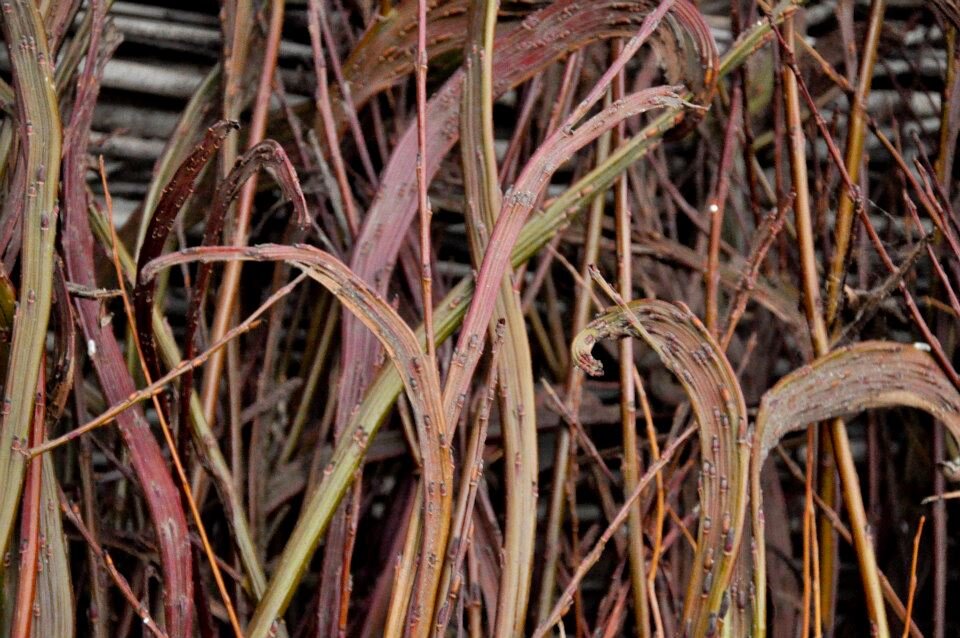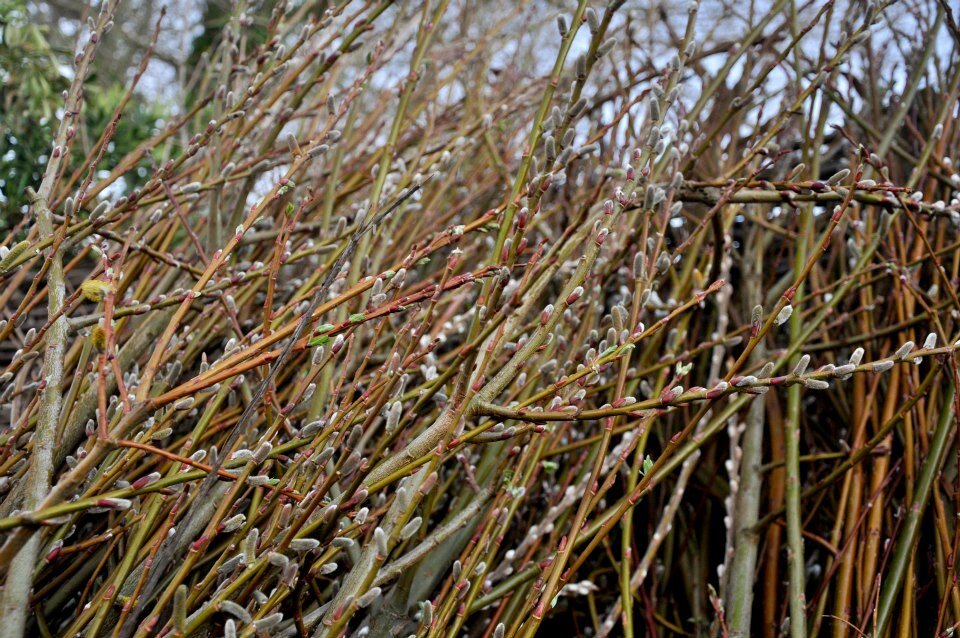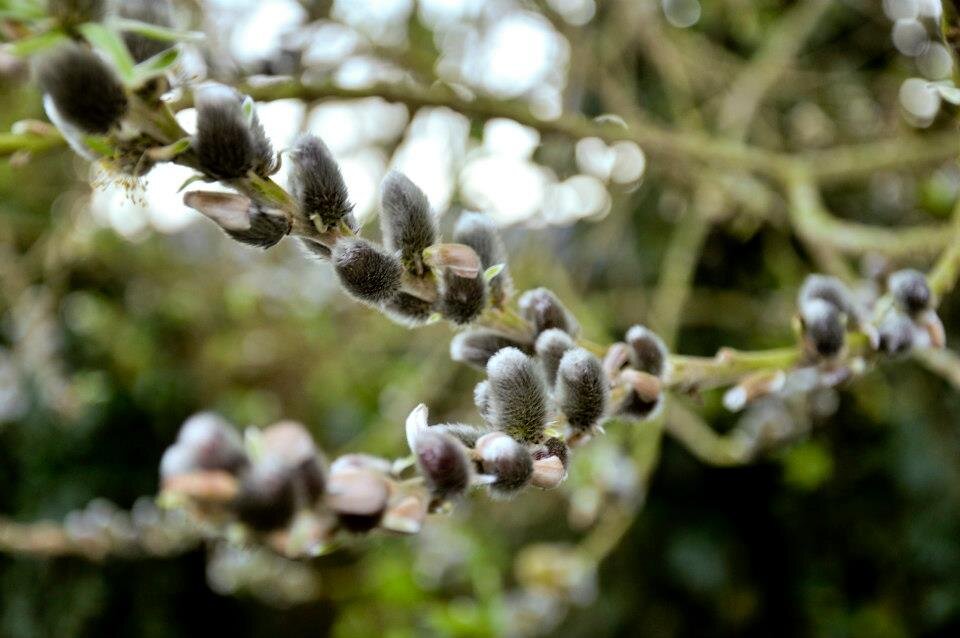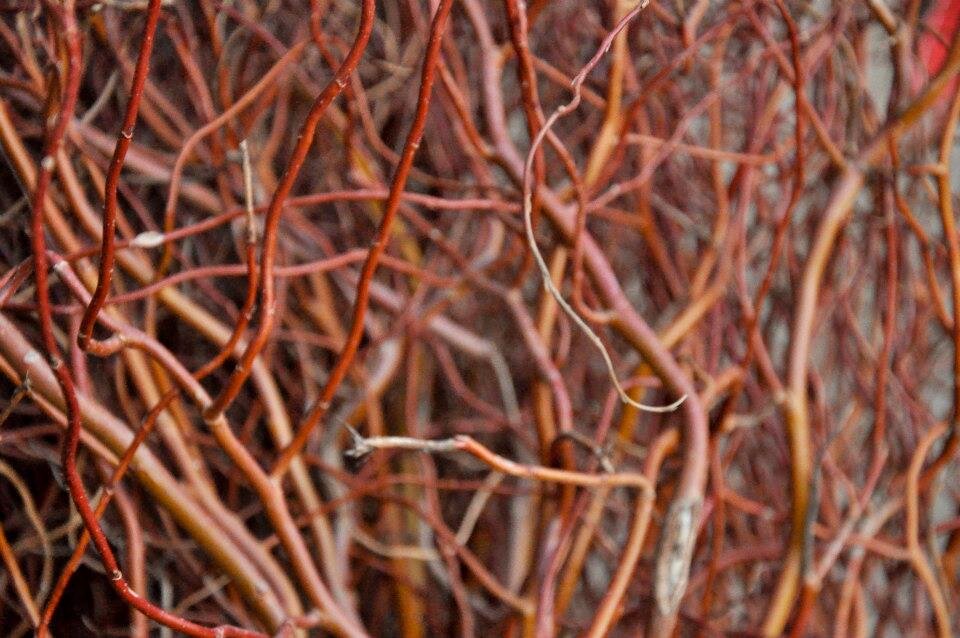They really are a tree that is too good to be true. Willows are so good for the ecosystem and for our bodies. I want to give a little summary of why these are such incredible plants. Our goal, on the farm, is to balance the regeneration of the land with our economic productivity. The animals and plants that we have on the farm all serve a purpose in improving our ecological systems and at the same time, providing beautiful, natural products for people to enjoy.
The standard “benefits of trees” apply here: Willows sequester carbon through photosynthesis, improving our air and soil quality. Carbon sequestration, soil and water health, and regenerative farming practices are a whole other conversation! We grow over 150 different varieties of willow and thousands of trees. Our property borders the Pescadero Marsh so we do flood, occasionally, during the winter. It is really the perfect crop to grow for this landscape. We use our livestock to trim, weed, and fertilize crops.
We live about two miles from the ocean. Our property used to be a conventional artichoke farm. It was very windy and flat and the soil quality was poor. My parents started planting trees in 1992 when I was born and we continue to plant more, twenty-eight years later.
The trees are an excellent windbreak. The trees at the back of this photo were all planted about 25 years ago and protect us from the coastal winds. Our original business was selling trees, under the name “Austree”, as windbreaks and fire breaks. These go hand-in-hand, slower wind, slower fire. Willow does not burn the same way other trees do, due to their high water content, about 50-55%. The CZU Fire Complex 2020 surrounded the town of Pescadero and we felt confident that our property was safer, in large part, because of all the willows and grazed land surrounding our homes.
These trees naturally grow along creek beds and are frequently used for habitat restoration and erosion control. They are able to filter toxins, grow quickly, and establish strong root systems. Our bird/wildlife on the property is unlike any of the surrounding populated areas.
Willows de-contaminate soil and water. Initially, this was helpful in cleaning our soil of fertilizers or pesticides, used by the conventional farmers before us. Our well water is clean and our soil is rich. The willows serve this purpose in the neighboring marsh. Marshes act as a buffer between the creeks and the ocean, like one big filter, made up of many different plants and animals that can process the water before it flushes out to sea.
Willows are fast-growing and relatively easy to propagate in areas with good soil, water, and organic fertilizer. We have a high volume of orders and need a plant that produces stems rapidly. All of our willow trees are coppiced meaning we do not kill the tree when we harvest; we cut off a limb and it grows back after a few months. “Willow water,” willows soaked in water, is used to assist in propagating other trees. When the willow is steeped for long periods of time, salicylic acid and Indolebutyric acid are released. These hormones stimulate root growth.
Willow is used medicinally. It’s an area we would like to explore more within our business. Here’s a short list of some health benefits:
Pain relief
Anti-inflammatory
Acne control
Gastrointestinal relief
Fever Reducer
Better Kidney Functionhttps://www.healthbenefitstimes.com/willow/.
I would recommend doing your own research and using holistic medicine at your own discretion.
In future blog posts, I will elaborate on some of these topics, including how our livestock interact with our trees. My parents completely transformed the landscape of this forty-acre plot of land. Every tree was planted with the intention of adding beauty and bio-diversity. Our trees are sterile males and do not interfere with the native varieties of willow that surround us.
These were my resources:
-https://deepgreenpermaculture.com/diy-instructions/home-made-plant-rooting-hormone-willow-water/
-https://www.healthbenefitstimes.com/willow/
-https://www.permaculturenews.org/2019/09/20/why-i-love-to-research/




